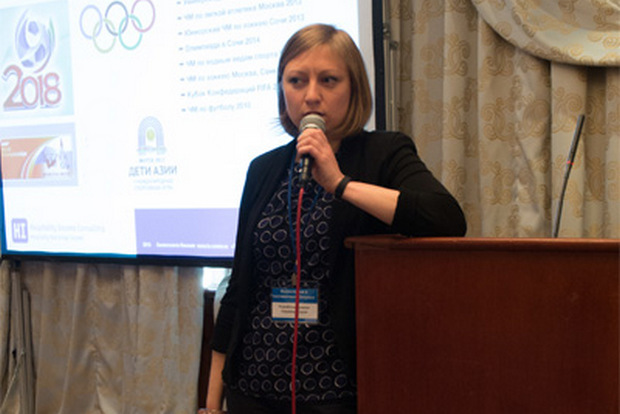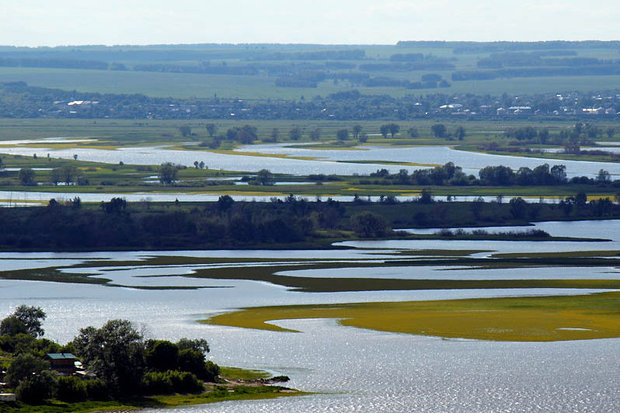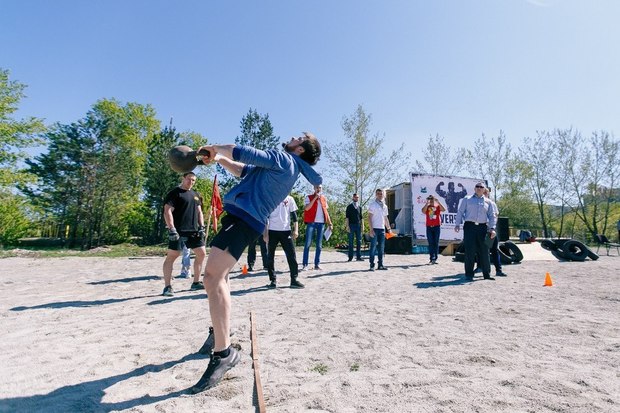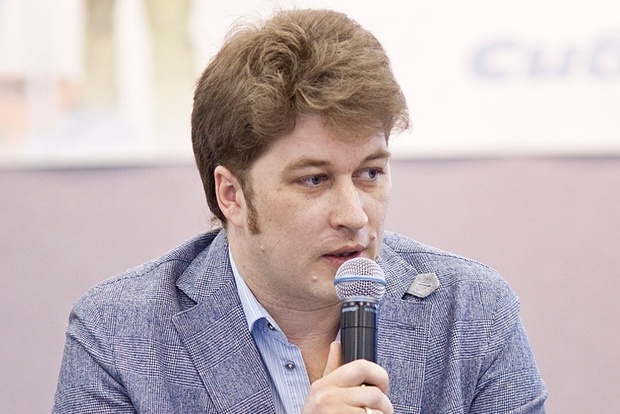Business of enthusiasts — Kazan Tourism Forum 2017 discusses why there are still few investors in the sector
Good and bad examples of fulfilment of investment projects in tourism were put on the forum
''Few people know what a potential investor who decided to invest money in creation of tourism facilities will see.'' The section 'Investors in Tourism: Where Are You and What Impedes You From Developing in Tourism?' started with these words. Speakers of the section put their cards on the table and stated that at the moment investments in tourism were enthusiasts' domain. But if they manage to cope with all barriers, they have a chance of making their dream real, if not make money. Here is Realnoe Vremya's piece.
Only 1/3 of 1,340 projects in the sphere of public and private partnership in tourism can be called successful, that's to say, that became real, said moderator and managing partner of Top Hotel Experts Natalia Rosenblum at the beginning of the section.
The sector's development can't be called rapid now. If eight types of PPP are applied in Europe, only three work in Russia, the speaker noted. In addition, this sector looks potentially very attractive. As one of the perfect examples of tourism development, Natalia Rosenblum put an example of Iceland that has shown a phenomenal growth pace of its tourist traffic in the last 6-7 years – by 25% a year since 2010. Occupancy of hotels throughout the country is 71,2% that is unprecedented considering that not a separate city or district but the whole country is the tourist zone. Russia's slice of the ''tourist cake'' is small now. Nowadays our country gets only 4% of all guests in Europe and 1,7% of incomes.
To increase the number of facilities of the tourism infrastructure and simplify the access to investments, Russia has a federal target development programme of domestic inbound tourism, a new one is being created. In general, the programme recommended itself successful, Natalia Rosenblum thinks.

However, the report of the Accounts Chamber, which was published one day before, says about quite bad results of the programme. About 7 billion rubles were invested in creation of tourism clusters in four regions of Russia. But the expected effect like investments in the fixed capital and solution of social problems – creation of additional working places – did not happen. Special economic zones as one of the ways of development of tourism territories don't live up to the expectations now.
''Unfortunately, the number of tourism SEZ in Russia reduced to three: Baikal Bay, Turquoise Katun, Baikal Gates,'' Rosenblum reminded. Among successful examples of the development of destinations, she remembered Caucasus resorts, particularly Arkhyz where investors go to quite willingly.
Investor has no place to go to: it's either a forest or body of water or arable land
Second speaker of the section Anvar Kamalov, financial director of Recreational Zone, doubted that the country needed investors, in general. At least, his attempts to become an investor are failing now. Recreational Zone has been trying to fulfil a rural tourism project near Kazan for several years already. Difficulties in obtaining a land parcel were the first obstacle that the entrepreneur faced. The process has been lasting for the third year already.
''Allocation of a land parcel turns into a complicated and unpredictable procedure. If you want to build a camping site near a body of water, a restriction of the water protection legislature works. It is not always possible to build in a forest. Our case is classic. The parcel we wanted to get turned out to be a forest, and not just a forest but the forest that belonged federal property with restrictions of a parkland zone where nothing can be built. Tourism can be developed but at the level of a tent. One can't build other facilities or draw a net. If you build not in the forest and not near water, the chances that the necessary land parcel will turn out cultivated lands where one can't build too are high,'' the expert shared his experience.
The land where it is allowed to build is very expensive. And big parcels are needed for the tourism sector because building density needs to be low. Kamalov calculates that the payback of such facilities is 5-8 years. But the shortest payback term is possible if your own money was used for construction, which is impossible in his case – the cost of the future facility totals hundreds of million rubles.

''If you build not in the forest and not near water, the chances that the necessary land parcel will turn out cultivated lands where one can't build too are high,'' the expert shared his experience.'' Photo: tatmuseum.ru
There are three options when an investor can get a land parcel to develop tourism: a favourable opinion of the investment council under the Tatarstan president, purchase of the land at auction or with public and private partnership. Auction is an expensive way. The starting price for 10 ha in the district where Kamalov's company wanted to purchase the land is almost 60 million rubles, while the project's price is 250 million rubles. It an unaffordable price, the expert stated.
Anvar Kamalov's company chose the easiest way, they thought. But the ''easy way'' did not lead to anywhere: Recreation Zone tried to reach the investment council under the Tatarstan president three times and is going to do it for the fourth time.
To dig money in on unconscionable contract?
The advantage of the investment council is that the land is given by rental agreement whose price is lower than the market price. But, in Anvar Khamalov's opinion, it's the end of the good news. The text of the agreement they asked was ''unconscionable''.
''The side that pays money for the allocated property can't be burdened with almost 40 commitments and has only one right – to fulfil conditions in this agreement,'' Kamalov made a witty remark.
What is more, from the speaker's point of view, potential investors are required things that they just can't do.
''I'll put only one example. A detailed creation of a business plan at the stage when the investor even doesn't have the land is requested by the investment council. According to the business plan, a complete logistics calculation is needed. But if you suppose to have a public canteen point, you almost need to know the menu you will use to feed people. In addition, they require a supply agreement with suppliers; apart from the contractor general agreement, the explanation of construction and assembly work (I will remind that there is neither a decision on land allocation nor a draft project) as well as detailed specification of the equipment that will be used on the site. In other words, you need to know the brand of the equipment, the price of gas ovens you'll use to cook. And it happens at the moment when you even don't know where the restaurant's wall will be,'' Anvar Kamalov told.
The country starts to earn in fact from the moment when the land is allocated by receiving the rent, while the investor's all money is at risk. This is why there are few investors, and those who exist are enthusiasts, the speaker concluded. In his opinion, a simplified process of land allocation and usual rental agreement would solve the problem.

''No budget money at all''
The experience of Irkutsk businessman Anatoly Kazakevich is more positive. He started to develop tourism on Baikal in 2007: he was a provider first, then he created Polyana sports park and Sunny Road park.
The idea to create these two recreation zones came to Kazakevich's mind when he faced a deficit of destinations as tour provider. Polyana park is a complex of facilities for activities: from sports sites to banya. Sunny Road is an embankment on the border with Sunny district, which did not have a pedestrian connection with other parts of the city. It is a single bicycle and pedestrian road along which infrastructure facilities were built. Kazakevich's company and residing investors managed to put the abandoned territory with a length of 400 metres in order within 1 year and 2 months.
They manage to keep one style and concept of the park thanks to the architect in staff – the residents have the right to build according to his project only. The format of work of Polyana and Sunny Road reminds technoparks: residents build facilities and manage them, the holding company provides improvement, infrastructure, control of compliance with the legislature and is responsible for cooperation with municipal authorities.
''As we agree on many facilities (25 residents work here), it is a usual document flow for us. Everything is not easy and smooth, much patience is needed, but we manage to find common ground with the administration.''
Investors join the project by paying a fee for landscaping and the grid. These ''lots'' amount to 2-25 million rubles. An investor subleases a parcel for 20 and 35 years. Costs on Sunny Road have already totalled 100 million rubles, the speaker calculated (30 million rubles for landscaping and the grid, another 70 – for construction of facilities), while general costs will reach about 500 million rubles. Investments in Polyana park will reach up to 150 million rubles. All money will be provided by individuals, Anatoly Kazakevich believes in success.

Anatoly Kazakevich: ''The country is not the best provider of the project. I know foreign examples. If an entrepreneur chooses a project, he fulfils it. If it is done by a person [functionary] who will change his working place in 2-3 years, the chances of success are low.'' Photo: irk.land
''Baikal has two special zones. But, in my opinion, they demonstrate not very good results. The country is not the best provider of the project. I know foreign examples. If an entrepreneur chooses a project, he is who fulfils it. If it is done by a person [functionary] who will change his working place in 2-3 years, the chances of success are low,'' the speaker thinks.
According to his observations, people who, first of all, want to make their dream come true become co-investors and residents: somebody wants to build a banya, somebody wants to open a family restaurant. The matter of money is important, but it is on the second place.
They also plan to create another three core facilities for Sunny Road: a water park, Irkutsk Prison and Angara icebreaker, which already serves as museum but without special intensity. The company is going to create these facilities using the same scheme when investors will purchase lots on landscaping and fulfil their small projects within the big one.
Kazakevich thinks that such a scheme is quite universal because it doesn't require the holding company to invest a lot in the beginning. At the first stage, his company needed to give money to create the design and plan and for overhead costs. The salary fund was small – four people work in staff, others – work outside the company. He calculated that starting investments in every facility were up to 5-7 million rubles.
It seems that there are another two factors of success. The speaker said at the very beginning of his speech that the region had no budget money at all, while the entrepreneurial community worked actively. Yes, it seems that functionaries in Irkutsk are at least ironic: people welcome Kazakevich at meetings with the deputy mayor with the words: ''How do you still tolerate us, so slow people?''